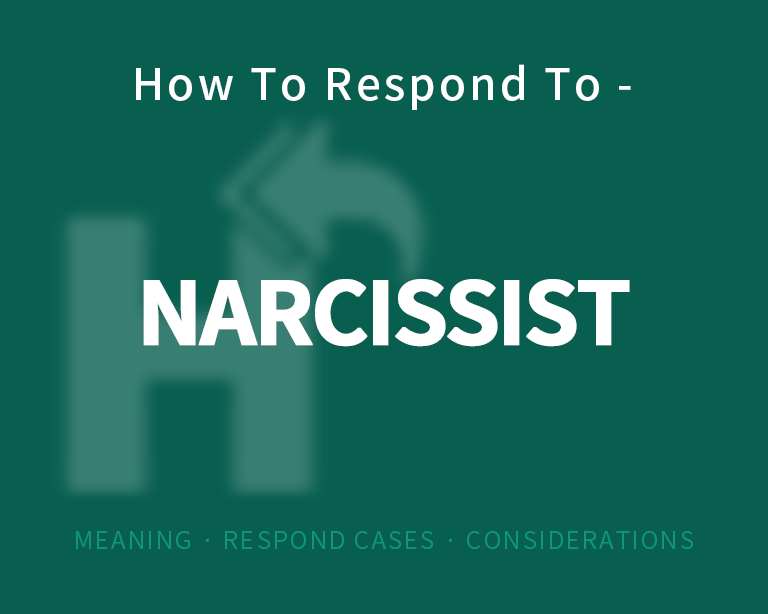The best way to respond to a narcissist

What is narcissistic behavior?
A narcissist is someone who has an excessive interest in or admiration of themselves. Narcissists display behaviors and attitudes that show a lack of empathy for others and a need to be the center of attention. Common narcissistic behaviors include:
- Constantly talking about themselves and their accomplishments
- Exaggerating their achievements and talents
- Expecting constant praise and admiration
- Believing they are special or unique and can only be understood by other special people
- Lacking empathy for the feelings and needs of others
- Envious of others or believes others are envious of them
- Difficulty handling any criticism and quickly become angry or dismissive
The best 3 ways to respond to a narcissist
- Stay calm and do not argue. Do not get drawn into arguments or try to convince the narcissist of your perspective. Remain detached from their drama and emotions.
- Set clear boundaries. Politely but firmly tell the narcissist which behaviors are acceptable and which are not. Be specific in your communication and consistent with your boundaries.
- Do not take the bait. Do not let the narcissist manipulate you into a reaction. Avoid praise or compliments as this feeds their ego. Stay neutral and respond only to the facts.
What are the considerations when dealing with a narcissist
Some things to keep in mind:
- Their behavior says more about them than you. Do not let their insults or manipulation make you feel inadequate or insecure.
- Avoid personalizing what they say. Do not engage or argue with unfounded accusations. Respond neutrally by restating your facts.
- Do not expect change. Accept that the narcissistic person will likely not change their behavior. You can only control how you respond to it.
- Limit contact when possible. Spend less time engaging with the narcissistic person if they start causing you distress.
- Build self confidence. Do not rely on the narcissist for validation or approval. Build self worth independent of them.
- Set limits and express yourself. Let the narcissist know if they have crossed a line, while also taking care of yourself emotionally.
- Get support from others. Surround yourself with people who love and support you. Their support can help balance out the effect of the narcissist.
Other specific cases of narcissistic behavior
Case 1: The narcissist constantly brags and shows off in public. You can say: "Please talk about others interests as well, not just your own accomplishments."
Case 2: The narcissist demands praise and compliments. You can say: "I appreciate your work, let's move on to discussing other topics now." Do not lavish them with praise, offer a quick acknowledgment and try to redirect the conversation.
Case 3: The narcissist blames and manipulates you during arguments. You can say: "I am not going to engage in hurtful accusations." Repeat that you will only discuss issues respectfully and then end the interaction if they continue to berate you.
Case 4: The narcissist spreads lies or gossip about you to make themselves look better. Do not confront the narcissist directly. Remain calm and detached, while setting the record straight with anyone who brings these falsehoods to your attention. Their behavior shows how little credibility they have.
Summary
In summary, do not let a narcissistic person's behavior get under your skin or make you doubt yourself. Have empathy for their need to tear others down to build themselves up, without condoning their harmful actions. Be firm and consistent with your boundaries, limit the hold they have over you, surround yourself with more supportive people, and remember that you cannot control them, you can only control your reaction. Do not engage or argue, remain detached from their drama and stay true to your values. In time, their tactics may hold less power over you.